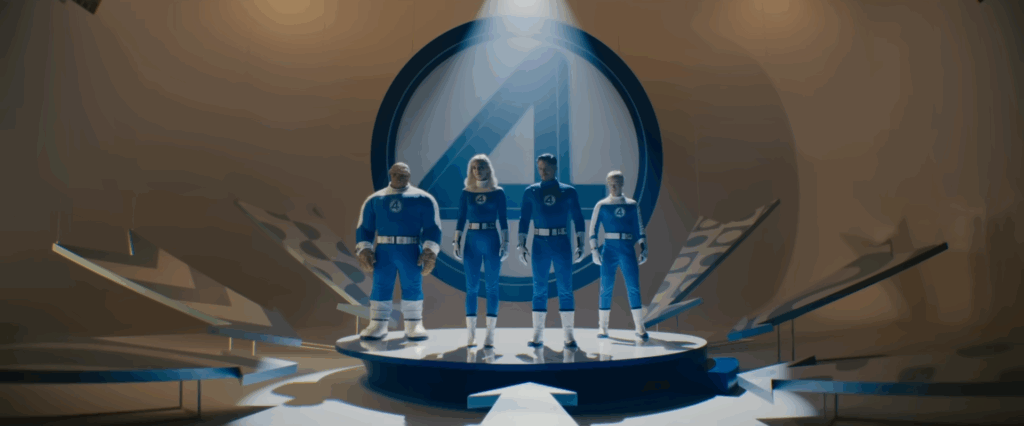The Fantastic Four: First Steps (2025)
Matt Shakman’s vision of the The Fantastic Four: First Steps may gesture towards greatness in its retro-futurist production design, but ultimately retreats into hollow grandeur, leaving behind a world rich in style for a superficial simulation that never dares to challenge its own utopian ideals.

